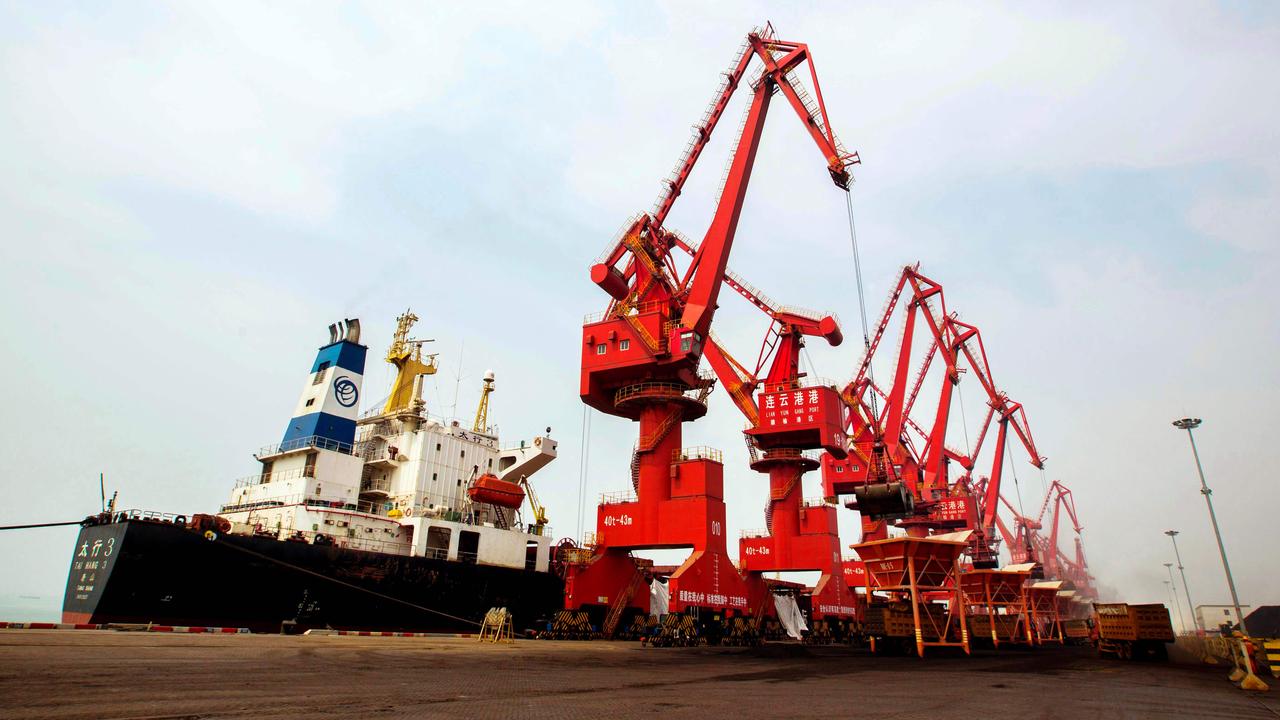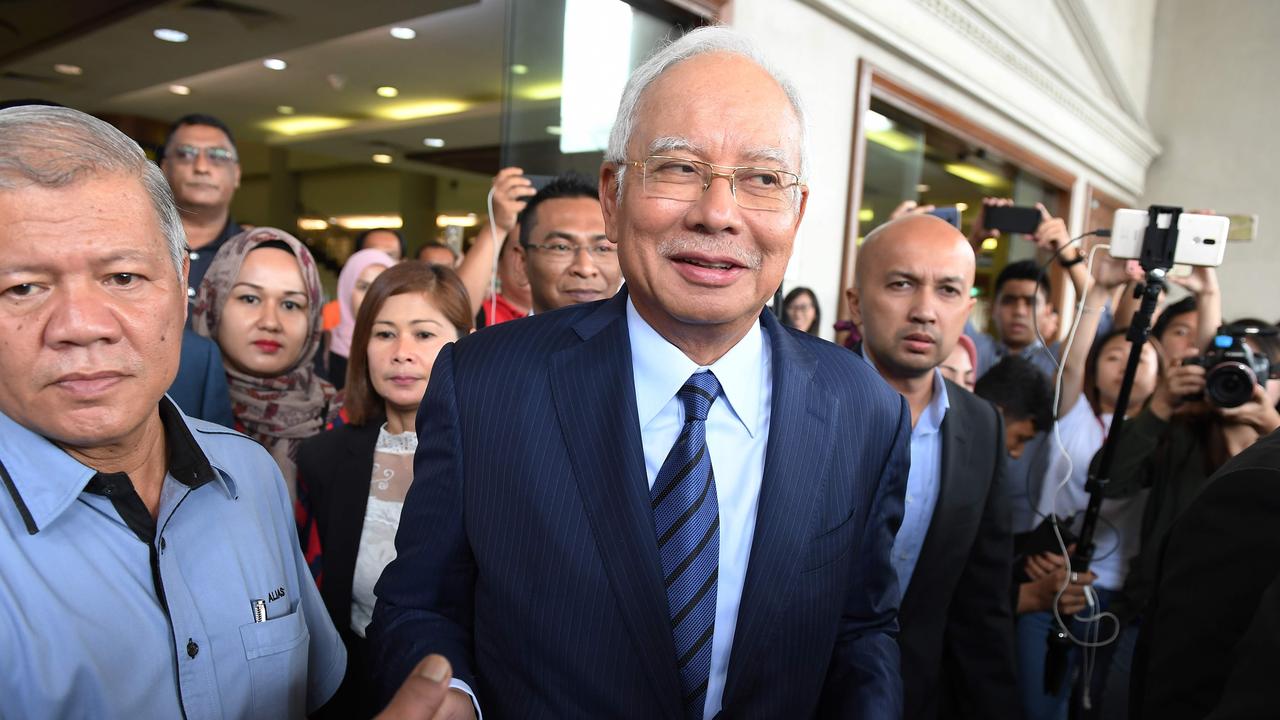China trade: exporters weigh new import rules
Chinese tax changes and potentially more debilitating import restrictions have come as a shock to some exporters.

Now, John Howard’s nephew is to play a significant role in Blackmores’ evolution from small family business to medium-sized firm to international corporation.
The company’s chief executive, Christine Holgate, Howard’s latest boss, is the heroine of Australia’s new China business thrust, as demonstrated by the emotive response to her highly personalised keynote address from the 600 people at the annual Australia China Business Awards in Shanghai last Wednesday.
Now it is not BHP or Rio but value-add companies such as Blackmores — with Asia sales, led by China, soaring 750 per cent — that are viewed as the role models and hopes for the future.
Even during the height of the commodities rush, relations with Chinese authorities were not invariably cosy, however. Price negotiations were tense and sometimes tetchy. Signals were sent out that they might be affected by this or that geopolitical event or position-taking. Beijing resented BHP’s moves to set in motion a more market-based arrangement for price-setting.
Now we’re back in similar territory, with tax changes and potentially more debilitating import restrictions being introduced rather suddenly to goods imported to bonded warehouses in free-trade zones and then delivered direct to consumers who have ordered them online. It’s come as a shock to those who had believed that especially with the implementation of the China-Australia FTA, all would be plain sailing.
But that’s rarely the case in international trade, and especially not with China — where neither cunning intent nor unspecified malevolence tend to be as important in offering explanations as a lack of expertise, with only about 100 officials responsible for the details of the whole gamut of pricing and other regulations relating to the access of foreign goods.
Another factor is China’s longstanding policy of testing the water by introducing policies or rules for a limited period, often in certain geographical areas — leaving room to adjust according to results. Underlying the present situation, as with that a decade ago for iron ore, coal and other commodities, is that Australia Inc — with most of the new value-added goods being imported from Australia — remains standing on the solid ground of sustained Chinese demand for its products.
Premier Li Keqiang told Malcolm Turnbull in talks in Beijing last Thursday China was seeking to engage Australia in new commercial areas, including “transnational e-commerce”.
The initial market response in Australia to the new rules, however, highlights the continuing strains between analysts and fund managers seeking to gain from swift growth or churn, and those — epitomised over the past decade by ANZ’s Mike Smith — determined to position their companies for growth in the larger, and often faster-growing, Asian markets.
Events such as the introduction of new Chinese customs rules intensify those strains. Thursday’s gala lunch in Shanghai concluding AWIC, attended by 1800 business people and addressed by Turnbull, comprised in effect a rally urging increased engagement in Asia and especially China, despite such apparent setbacks. “The opportunities are now global,” Turnbull said at a tourism event in Shanghai. “And it’s vital that Australian businesses tap in to them. This is the boom of the 21st century.”
China Policy, a leading analytical agency established in Beijing by Australians David Kelly and Philippa Jones, says in a paper about to be published and made available to The Australian, that while it may have been portrayed otherwise in Australia, “the new tax regime for direct retail imports is not a strike against foreign exporters, but a regulatory lever to build markets, and develop logistics chains and consumer protections”.
Ten days ago, a new tax regime came into effect for 1142 categories of direct retail imports, formalising e-commerce trade under the import tax system.
This, says China Policy, “shifts small-scale direct-retail cross-border trade from the postal system to regular import channels, overcoming limitations of the previous system, under which customs clearance is possible in only seven postal ports, overcoming more parcels flooding the General Administration of Customs than it can effectively inspect for quality, and overcoming inadequate quarantine supervision of milk powder, food and nutritional supplements entering China.”
Now 65 ports — 34 airports and 31 bonded ports — can process direct retail imports, “raising logistical and customs inspection efficiency”, the paper says.
Most goods were entering China through the parcel-tax postal system and tended to pass duty- free. Under the new rules, goods worth up to $400 receive a 30 per cent discount on full import value-added tax and sales tax, and are not charged import duty. Those worth more are subject to full import duty, import VAT and sales taxes. Doubling the duty-free threshold to $400 exempts almost three-quarters of direct retail items from import duty, China Policy says.
Beijing News business commentator Dai Yuxi says while the steps are in the right direction, “local supervision departments and businesses are ill-prepared for such a hastily implemented tax policy, which will hit bottom lines. Free-trade zones are nearly paralysed by having to block orders placed prior to the new rules” — although Holgate says a shipload of Blackmores products was landed and cleared in Shanghai without a hitch last week.
Rory Macleod, managing director of Sydney-based agribusiness Freedom Foods, who participated in AWIC, says Alibaba, whose Tmall subsidiary warehouses and ships many of the Australian products sold online to consumers, provided a warm reception for the Australian business team visiting its Hangzhou HQ, greeting it with a banner celebrating “Premium Australia”.




The career of Lyall Howard, Blackmores’ well-connected and credentialled new advocate in Canberra, encapsulates the rapid evolution of Australia’s cutting-edge businesses, especially in the export world. After a time as a trade expert with agribusiness, Howard worked in strategic roles for Rio Tinto, then BHP Billiton, before becoming a key adviser to then trade and investment minister Andrew Robb during the days when the free-trade agreements with China, Japan and South Korea, and the Trans-Pacific Partnership, were being nailed.